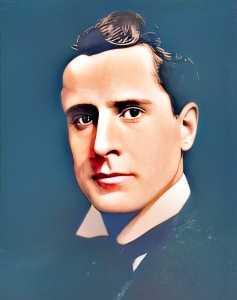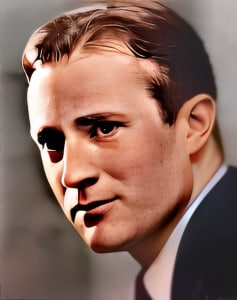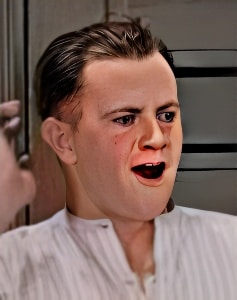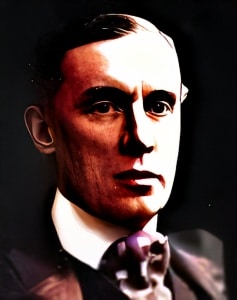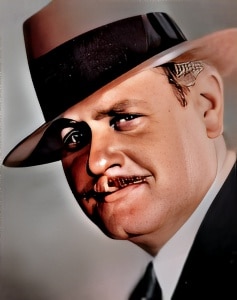 Alan Hale, born Rufus Edward Mackahan on February 10, 1892, in Washington, D.C., was a prolific character actor during the Golden Age of Hollywood.
Alan Hale, born Rufus Edward Mackahan on February 10, 1892, in Washington, D.C., was a prolific character actor during the Golden Age of Hollywood.
His versatile talent allowed him to excel in a wide range of roles, earning him a lasting place in cinematic history.
Hale’s journey into the world of entertainment began on the stages of vaudeville and theater, where he honed his acting skills and developed a strong foundation in the performing arts. He made his film debut in the silent era and quickly established himself as a reliable and adaptable character actor.
One of the hallmarks of Alan Hale’s career was his ability to seamlessly transition between different film genres. He appeared in comedies, dramas, adventure films, and swashbuckling epics, demonstrating his versatility as an actor. His rugged appearance and distinctive voice made him a memorable presence on screen.
Hale’s filmography is filled with notable roles, and he often played supporting characters alongside some of Hollywood’s biggest stars. In the classic adventure film “The Four Horsemen of the Apocalypse” (1921), he appeared alongside Rudolph Valentino, marking one of his early successes in the industry.
One of Hale’s most iconic roles was that of Little John in the 1922 silent film “ Robin Hood,” starring Douglas Fairbanks. His portrayal of the legendary outlaw’s loyal companion showcased his ability to add depth and humor to a character, making Little John a beloved figure in the film.
“ The Covered Wagon” (1923) marked another significant moment in Hale’s career. This epic Western depicted the challenges faced by pioneers traveling the Oregon Trail and showcased Hale’s versatility as an actor. His character added depth to the film’s ensemble cast and contributed to its cinematic legacy.
The 1930s saw Alan Hale in a series of Warner Bros. films, where he often played jovial and boisterous characters. He became a frequent collaborator with Errol Flynn, sharing the screen with the dashing leading man in several swashbuckling adventures. His role as the boisterous but lovable friend to Flynn’s characters added both comic relief and camaraderie to films like “The Adventures of Robin Hood” (1938) and “The Sea Hawk” (1940).
Hale’s contributions to cinema extended to other notable roles as well. In “It Happened One Night” (1934), he portrayed a bus driver who helps Clark Gable and Claudette Colbert’s characters on their journey, earning him a place in this beloved screwball comedy.
As Hollywood transitioned to sound cinema, Alan Hale made a successful adaptation to the new medium. His distinctive voice, which had been an asset in the silent era, served him well in sound films. He continued to appear in a variety of roles, from action-adventure to crime dramas, leaving his mark on each production.
One of his enduring roles was as Inspector Winchester in the “Charlie Chan” film series. Hale’s portrayal of the witty and good-natured detective added a unique flavor to the series and contributed to its charm.
Alan Hale’s final film role was in “The Giant Spider Invasion” (1975), capping a career that had spanned over five decades. He passed away on January 22, 1950, but his contributions to the world of film continue to be celebrated and cherished.
Today, Alan Hale is remembered as one of the most versatile character actors in the history of Hollywood. His ability to adapt to different genres and his memorable performances alongside some of the industry’s biggest stars have solidified his place in cinematic history. While he may not have achieved the same level of fame as leading men, his talent and enduring presence on screen make him an integral part of Hollywood’s Golden Age.
Loading live eBay listings...

